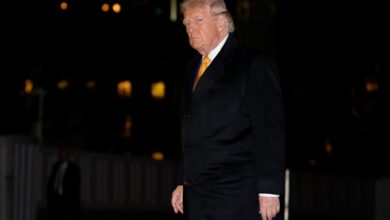COVID-19: Why Did Pfizer and Moderna Vaccines Increase in Price?
Two of the most important pharmaceutical companies in the world have decided to increase the price of their biological in Europe. What is the reason and how will this situation affect Latin America?.

Although the majority of the world has entered what is known as a “new normal”, after more than a year since the beginning of the pandemic, the truth is that returning to the “old normal” is an issue that is still distant. Photo: Unsplash
LatiAmerican Post | Christopher Ramírez Hernández
Listen to this article
Leer en español: COVID-19: ¿por qué aumentaron de precio las vacunas de Pfizer y Moderna?
Although most of the world has entered what is known as a "new normal", after more than a year since the World Health Organization (WHO) determined COVID-19 as a pandemic (on March 11, 2020), the truth is that returning to the “old normality” is an issue that is still distant.
In recent weeks, there has been an outbreak of the new coronavirus SARS-CoV-2, responsible for COVID-19, especially in Europe. According to the WHO, the European continent faces a new peak of the pandemic, reaching a total of 60 million infected on August 2, as well as a little more than 1.2 million people who died from this disease.
“The end of the pandemic is still on the horizon […]. It is important that countries continue their combined efforts to protect the most vulnerable population and those at risk, ”said the WHO-Europe Emergency Directorate, Dorit Nitzan, through a press release.
However, the vaccination process is not an issue that brings much hope in that continent, taking into account that the promises made by the European Union (EU) in relation to this item are increasingly broken.
Also read:Opinion: The World Must Choose: Health or Freedom
For example, according to data from the European Center for Disease Control and Prevention (ECDC), the idea was that by the end of the first quarter of 2021, at least 80% of the adult population over the age of 2021 was already immunized. 80 years, as well as 80% of the health workforce across the EU. However, at the beginning of April, only 27% of people over 80 years of age and 50% of health workers had been inoculated with the two necessary doses.
In fact, it was only until July 25 that the ECDC gave positive results on the vaccination process, ensuring that 84.1% of people aged 80 and over already had a full vaccination. Now, although in this item the promise has already been fulfilled (four months late), that of immunization to health personnel is still a debt, since, according to figures from this entity, only 77% of health workers have already have both doses.
Delta variant: responsible for the price increase
However, it seems that the promises of the EU still have to wait, as the economic factor could enter into crisis. On August 1, the world woke up to the news that has worried most countries, especially Europeans: Pfizer and Moderna vaccines against COVID-19 will go up in price in the EU.
According to a report leaked by the Financial Times, the latest contracts signed between the EU and pharmaceutical companies to acquire supplies of the vaccine stipulate an exponential growth in the price of the biological. In the case of Pfizer / BioNTech, the price of the vaccine will rise from 15.50 euros ($ 18.39) to 19.50 euros ($ 23.14) per dose, which represents an increase of 25%. For its part, Moderna will have an increase of 10%, going from 19 euros ($ 22.50) to 21.50 euros ($ 25.50).
Of course, this increase doesn't appear out of anywhere, but rather in response to the same changes that the new coronavirus has shown over time, specifically, the Delta variant that today afflicts much of the world.
The Colombian Ministry of Health, through Carlos Álvarez, dialectologist and designated by the WHO for clinical studies against COVID-19 in that country, explains that this variant has had a direct influence on the increase in vaccine prices, having keep in mind that it is capable of affecting the effectiveness of some of them.
Regarding the question of whether or not there is a need to reinforce the vaccination schedule with a third dose of, for example, the Pfizer or Sinovac (Chinese vaccine) vaccines, which of course would mean greater spending for the countries, Carlos Álvarez assured that although it is a possibility that is being studied "so far we do not have a concrete answer in the world."
According to an interview given by the French Secretary of State for European Affairs, Clément Beaune to Radio France Internationale (RFI), this situation must be viewed “with rationality”, since it is logical that pharmaceutical companies will impose “more demanding contracts, with adapted products to the variants ”. He also indicated that this will not be luck that only the European Union will live, "but that for all buyers it will be a little more expensive."
"They are adapting them to the variants, as requested in the contracts that are being negotiated," added Beaune.
How will this increase affect Latin America?
Although this is an issue that will of course have direct consequences throughout the planet, it should be remembered that Latin America is one of the areas that has received COVAX coverage, the alliance that is shown as “the only global initiative that collaborates with governments and manufacturers so that vaccines against COVID-19 are available worldwide, both for high-income and low-income countries, "as explained by the WHO through an official statement.
For his part, the deputy director of the Pan American Health Organization, Jarbas Barbosa, reported at the end of 2020 that in Latin America “we have 27 countries that are going to pay for vaccines, and ten countries that are going to receive the vaccine without paying because under economic criteria they are the poorest countries or because of their small population they have more difficulty of access. These are criteria of the World Bank that the Gavi Vaccine Alliance is using, which is led by COVAX ”.
In short, although the increase in the price of Pfizer and Moderna vaccines may also affect vaccination processes in this part of the world, it will not have as negative an impact as it could have in areas not covered by the COVAX alliance or otherwise. types of financing strategies for developing countries.




